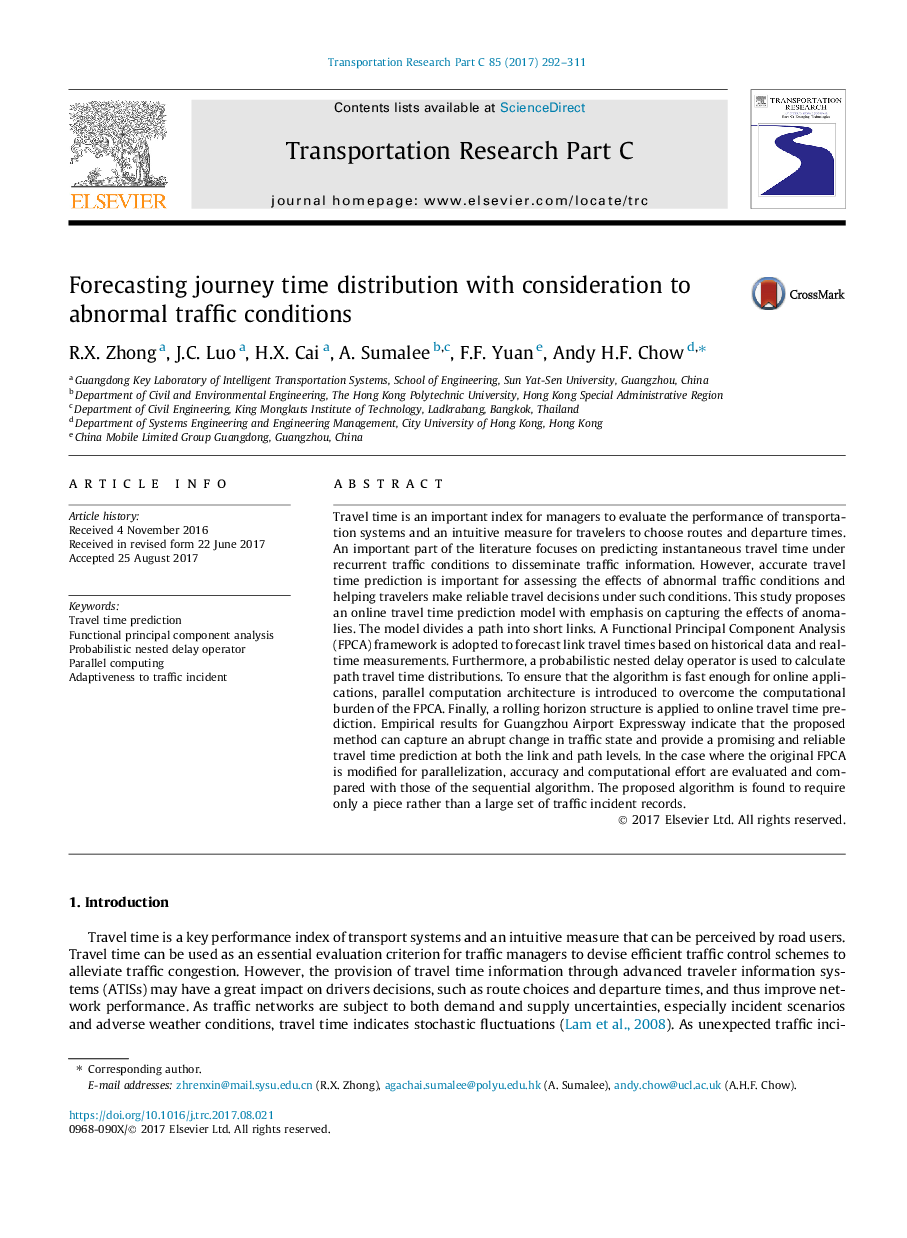| Article ID | Journal | Published Year | Pages | File Type |
|---|---|---|---|---|
| 4968387 | Transportation Research Part C: Emerging Technologies | 2017 | 20 Pages |
Abstract
Travel time is an important index for managers to evaluate the performance of transportation systems and an intuitive measure for travelers to choose routes and departure times. An important part of the literature focuses on predicting instantaneous travel time under recurrent traffic conditions to disseminate traffic information. However, accurate travel time prediction is important for assessing the effects of abnormal traffic conditions and helping travelers make reliable travel decisions under such conditions. This study proposes an online travel time prediction model with emphasis on capturing the effects of anomalies. The model divides a path into short links. A Functional Principal Component Analysis (FPCA) framework is adopted to forecast link travel times based on historical data and real-time measurements. Furthermore, a probabilistic nested delay operator is used to calculate path travel time distributions. To ensure that the algorithm is fast enough for online applications, parallel computation architecture is introduced to overcome the computational burden of the FPCA. Finally, a rolling horizon structure is applied to online travel time prediction. Empirical results for Guangzhou Airport Expressway indicate that the proposed method can capture an abrupt change in traffic state and provide a promising and reliable travel time prediction at both the link and path levels. In the case where the original FPCA is modified for parallelization, accuracy and computational effort are evaluated and compared with those of the sequential algorithm. The proposed algorithm is found to require only a piece rather than a large set of traffic incident records.
Related Topics
Physical Sciences and Engineering
Computer Science
Computer Science Applications
Authors
R.X. Zhong, J.C. Luo, H.X. Cai, A. Sumalee, F.F. Yuan, Andy H.F. Chow,
